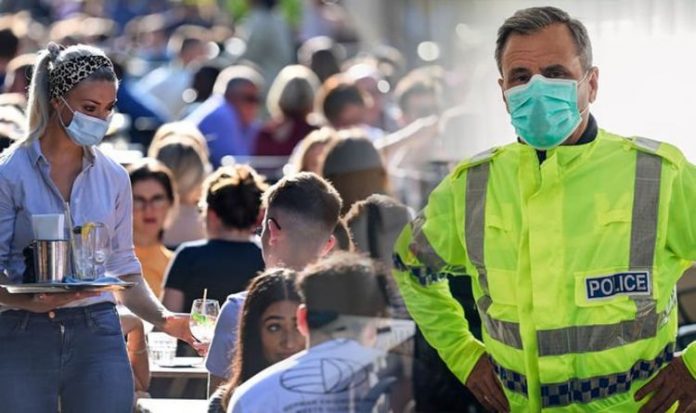Coronavirus is a raging threat around the globe having infected more than 31 million people worldwide. Prime Minister Boris Johnson announced the UK is “now seeing a second wave” of the virus and therefore stricter rules have been put into force in a bid to slow the spread of the deadly virus. Express.co.uk has outlined the specific rules and penalties for any lockdown breaches.
England’s chief medical officer Professor Chris Whitty has warned coronavirus infections are “heading in the wrong direction”.
He is due to give a briefing on Monday to discuss the rising rates of COVID-19.
Professor Whitty will be joined by chief scientific adviser Sir Patrick Vallance, but the scientists will not be joined by Mr Johnson.
In a statement ahead of the briefing, Professor Whitty said the country was at “a critical point” in the pandemic.
Professor Whitty said: “We are looking at the data to see how to manage the spread of the virus ahead of a very challenging winter period.”
READ MORE: Piers Morgan savages Matt Hancock ahead of This Morning interview
What are the penalties for breaching the lockdown rules?
People in England who refuse an order to self-isolate could be fined up to £10,000 from September 28.
The new law requires people to self-isolate if they test positive or if they are told to do so by a test and trace official.
Fines will begin at £1,000 and rise to £10,000 for the worst offenders, including those who prevent others from self-isolating such as an employer demanding an employee returns to the workplace.
More than 19,000 fines have been issued in England and Wales for alleged breaches of lockdown rules according to the attorney general.
However, half of these fines have yet to be paid.
Those aged 18 and over in England can be fined £100 for the first offence, lowered to £50 if paid within 14 days, and doubling on each repeat offence up to a maximum of £3,200.
The Joint Committee on Human Rights said it was “unacceptable” that “many thousands” were receiving fixed penalty notices despite evidence the police did not fully understand their powers.
The organisation added there is no realistic way for people to challenge FPNs, which could result in fines in excess of £10,000 in England.
The committee said: “This will invariably lead to injustice as members of the public who have been unfairly targeted with an FPN have no means of redress and police will know that their actions are unlikely to be scrutinised.”







